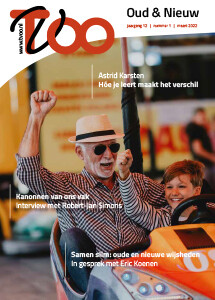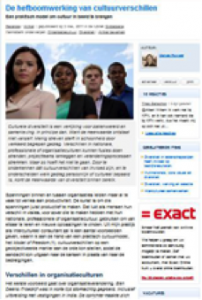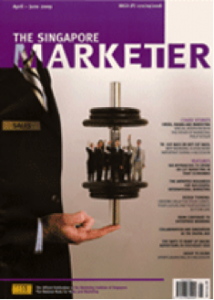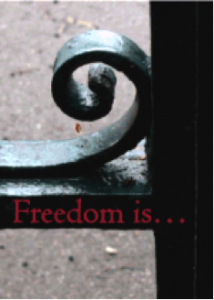Caleidoscopisch Samenwerken
Caleidoscopic Cooperation

Dutch article in Tijdschrift voor Ontwikkeling in Organisaties, March 2022
We ontwikkelen van nature allemaal vertrouwen en empathie ten opzichte van onze naaste familie en relaties. We zijn echter niet van nature geneigd om mensen te vertrouwen die we als vreemden beschouwen, mensen buiten onze sociale comfortzone. In grensoverschrijdende samenwerking, zoals mondiale teams, ontbreekt een gedeeld cultureel patroon. Dit leidt tot problemen bij het opbouwen van vertrouwen, een gebrek aan voorspelbaarheid, misverstanden, ineffectiviteit en soms conflicten. Het herkennen en begrijpen van elkaars culturele gedragspatronen helpt deze onbedoelde negatieve gevolgen van interculturele samenwerking te voorkomen.
Why a people-focus is not enough; the practical art of reconciliation
Humaan organiseren is niet genoeg; verzoeningskunst in de praktijk

TvOO, December 2014
People, planet, profit; a dream or reality? For most multinationals, especially facing a time of crisis, the focus is on profit. Critics believe that the post-modern era will show a trend shift from profit to people. However, are these really mutually exclusive aspects of organizing? A radical mindset shift from one to the other is not a solution, as the situation in itself is not a problem; it’s a set of paradoxes. Based on two real life cases, this article examines how organizations can succeed by reconciling the paradoxes that exist between people, planet and profit.
Read this full article (in Dutch) here.
Omoiyari: co-creating solutions
Samen oplossingen creëren

TvOO, 2012
Dutch article by Danaë Huijser on the process of co-creating solutions through omoiyari. Cultural differences can lead to friction and misunderstanding. Yet, with the proper approach, the added value of cultural differences will surface. In this article, Danaë describes how she found omoiyari to be an effective approach. Omoiyari, a Japanese concept, is best translated as ‘sending compassion to others’. By thinking and acting in an omoiyari fashion, we can become more aware of our own strenghts, and learn to appreciate those of others. This leads to a stronger sense of team, more organisational commitment and room for improvements. This article describes when and how omoiyari works in practice.
Leveraging cultural differences
De hefboomwerking van cultuurverschillen

Managementsite, 2011
Dutch article by Danaë Huijser on the leveraging capability of cultural differences. Based on real-life cases from Managing Mindsets, Danaë addresses how cultural diversity stemming from either national, organisational or professional differences can stifle M&A processes, paralyse project teams and inhibit change processes. But it doesn’t have to be that way. By recognising the influence of cultural differences, and separating personal from cultural behaviour, the added value of diversity comes within reach.
Making innovation work
The innovative potential of cross-professional teams

CMC-Europe, 2010
Article by Danaë Huijser, based on her Master Thesis of International Business for TiasNimbas Business School. The research addresses the issue of how cross-professional teams can take advantage of their diversity to create innovative solutions. Four teams in four multinational organisations were interviewed in 2009, using the Appreciative Inquiry method, to unravel how cross-professional teams can create the conditions that will allow them to capitalise on their diversity.
The advantage of gender diversity
“Congratulations, is it a boy or a girl?”
CMC-Europe, 2010

Men and women prefer different styles when it comes to communication. These differences can have a negative influence on cooperation and communication between men and women at work. This article approaches gender diversity as an advantage. It offers a simple structure that puts the differences in perspective, thus helping the reader understand and use different styles to cooperate more effectively with the other gender
The untapped resources for successful international marketing
A tool that goes beyond market research

The Singapore Marketer, April – June 2009
Article by Mijnd Huijser, founder of CMC – Culture & Management Consulting, on cross-cultural marketing. He introduces the Model of Freedom as a tool that goes beyond market research in understanding the layers underneath consumers’ behaviours. Mijnd held a presentation on this topic on May 5th 2009 for the Marketing Institute of Singapore
Freedom is…

Published on the occasion of the master class `Model of Freedom´, September 2007
What is freedom to you? It might seem a simple question with no relation to your work, but in finding the answer, the mind dwells upon many aspects of life. With great frankness, eleven professionals in cross-cultural management pondered this penetrating question. We tried to find out how the concept of a universal value, freedom, is perceived in different cultures, and how it relates to one’s professional life.
